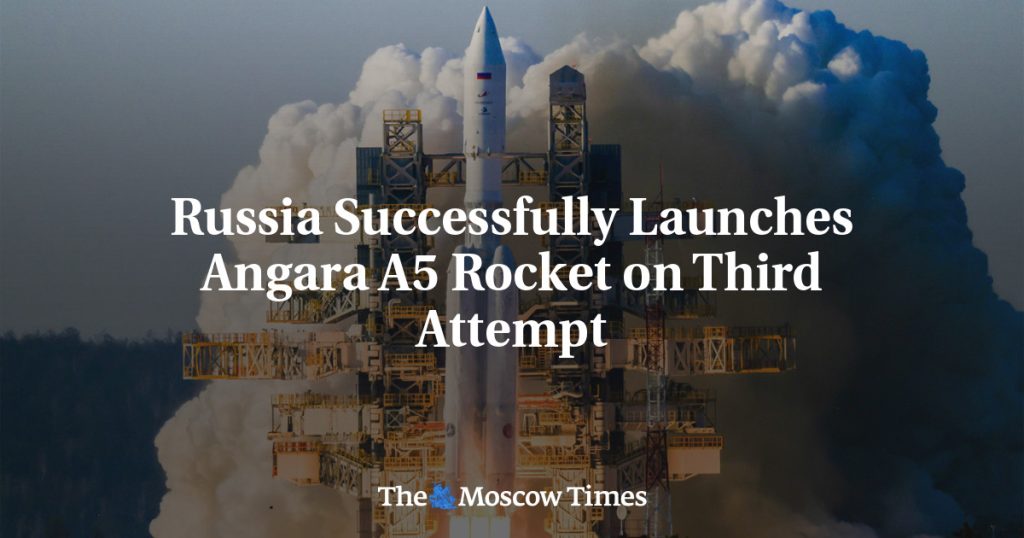Russia successfully launched the Angara A5 space rocket from the Vostochny Cosmodrome after two aborted liftoff attempts earlier in the week. The heavy-lift rocket was initially scheduled for launch on Tuesday in the Amur region spaceport in Far East Russia, making it the first Angara A5 launch from Vostochny. The first attempt was called off due to malfunctions in an oxidizer tank in the rocket’s power unit, while the second attempt was aborted over a failure in the engine start control system. After a successful launch on Thursday, the Orion upper stage separated from the rocket’s third stage and sent a test payload into orbit.
President Vladimir Putin has highlighted the importance of the Angara rocket in national security, even though the project has faced delays and technical setbacks. Roscosmos has pointed out the rocket’s smaller ecological footprint around launch sites and drop zones, as it does not use aggressive and toxic propellants. The Angara A5 rocket was commissioned after the dissolution of the Soviet Union to ensure access to space in case Ukraine withheld vital components. It is designed to succeed Russia’s Proton launcher and will be used to deliver modules for a planned rival to the International Space Station.
The Angara rocket project began in order to maintain Russia’s access to space once their lease of Baikonur from Kazakhstan expires in 2050. Russia aims to construct its own space station in the coming years and hopes to utilize the Angara’s cargo capacities for this purpose. The launch of the Russian Soyuz MS-25 spacecraft to the International Space Station was recently postponed at the Baikonur Cosmodrome due to a “voltage dip” in a chemical power source during pre-launch preparations. The Angara A5 rocket launch from Vostochny marks the start of flight design tests for the new space rocket.
The successful launch of the Angara A5 rocket represents a significant achievement for Russia’s space program and opens up new possibilities for the country’s future space initiatives. Despite facing technical challenges and delays, Roscosmos has been able to overcome these obstacles and demonstrate the capabilities of the Angara rocket. The rocket’s smaller ecological footprint and use of non-toxic propellants make it a more environmentally friendly option for space launches. President Putin’s support of the Angara project underscores its importance in ensuring Russia’s national security.
The Angara A5 rocket launch from Vostochny signals Russia’s commitment to maintaining its presence in space and developing new technologies for future space exploration. With plans to construct a rival space station to the International Space Station, Russia is strategically positioning itself as a key player in the space industry. The successful launch of the Angara rocket is a testament to Russia’s capabilities in overcoming technical challenges and achieving its space program objectives. As Russia continues to invest in its space program, the potential for further advancements in space technology and exploration remains strong.


